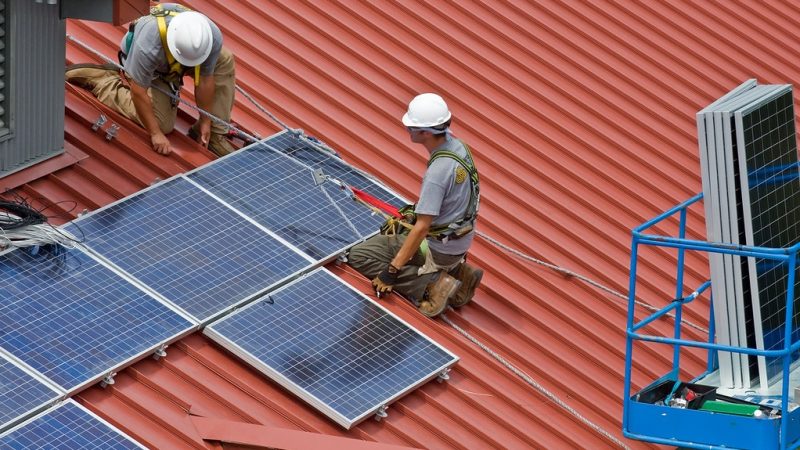Europe’s recovery package should be designed for sustainability and help SMEs go green while supporting modernisation, writes Mats Engström. [Wayne National Forest / Flickr]
By Mats Engström
EU institutions and member states must act quickly and coherently in response to the COVID-19 crisis, writes Mats Engström. He suggests six points to consider when EU institutions work out post-crisis recovery plans.
Mats Engström is senior adviser at the Swedish Institute for European Policy Studies (Sieps).
The climate crisis does not disappear because we are now facing an immediate health threat. On the contrary, there are benefits from meeting the urgent situation today with measures that also promote sustainability.
Some voices have been raised to ditch the Green Deal and weaken EU climate policies. It is encouraging that this is not the view of the Commission. Hopefully, Member State governments will agree. Environmental policy has survived earlier crises and is today a key part of European integration, providing legitimacy and global influence.
These are difficult times with many uncertainties. Still, the European institutions and the Member States have to act quickly and as coherently as possible. Here are six points to consider in the current rapid decision-making.
- Design recovery packages for sustainability. Immediate measures for survival such as new credit lines will most likely be followed by support to specific sectors. Sustainable mobility is a case in point, where significant change is now possible. There will be rescue measures for airlines but they need to come with green conditionalities and be matched by investments in low-carbon transport modes. Financial support should be given also to providers of services for sustainable mobility, many of them small and medium size companies (SMEs).
- Help SMEs to become greener. In the short term, simple solutions like the German direct support to SMEs are necessary. In the medium-term, more targeted support can give positive environmental impact. Governments could for example consider “green checks” or tax incentives, for example in promoting the circular economy. Upscaling the envisaged “renovation wave” in the Green Deal will create jobs and give many SMEs chances of recovery, not only in the construction sector. Government banks such as KfW in Germany and the EIB should pay particular attention to how companies contribute to green transitions when they now increase their investments in SMEs.
- Support modernisation. The crisis will intensify structural change. For example, European companies will face stronger challenges from China now restarting its economy. The measures to promote low-carbon transformation recently proposed by the Commission in the Industrial Strategy need to be implemented rapidly. They should be complemented by policies to promote resource efficiency and reduction of other pollutants than carbon dioxide. Digital solutions for sustainability should be a key part of such a modernisation package. A specific support program could make innovative digital solutions used during the crisis permanent. Rapid agreement on the new Multiannual Financial Framework (MFF) should include increased funding for research and development. Such agreement would also facilitate front-loading of money from 2021 budget lines to this year.
- Build green skills. Member States should quickly scale up education programs including vocational training to meet rising unemployment. Addressing the need for specific skills in low-carbon transformations should be part of such programs and the Skills Agenda be updated, as proposed in the Green Deal Communication.
- Strengthen multilateralism. It is a natural instinct for governments to protect their own citizens. Still, the pandemic drastically illustrates the need for stronger global governance with many similarities between public health, climate change and biological diversity. Provision of public goods such as fresh water, anti-viral medication and vaccines must be high on the political post-crisis agenda. The European Union should intensify preparations for the UN Reform Summit in September and strengthen alliances with other parts of the world hard hit by the present crisis. EU-China relations will be crucial as well as relations with a post-Trump United States.
- Increase resilience. The current problems related to global supply chains of protective equipment and medicines are not unique to pandemic preparedness. There are similarities to disruptions caused by extreme weather events. Strategic European sovereignty will remain on the agenda, but there is also a need for stronger global cooperation on sustainable supply chains, including better transparency. Risk multipliers such as poverty must be better addressed.
Environmental aspects are not optional to crisis response. As stated in the Treaties, they should be integrated in all policies. There are many links to public health. Climate change will cause millions of deaths if we do not act decisively. A well-designed recovery strategy can promote sustainability and modernise Europe.
